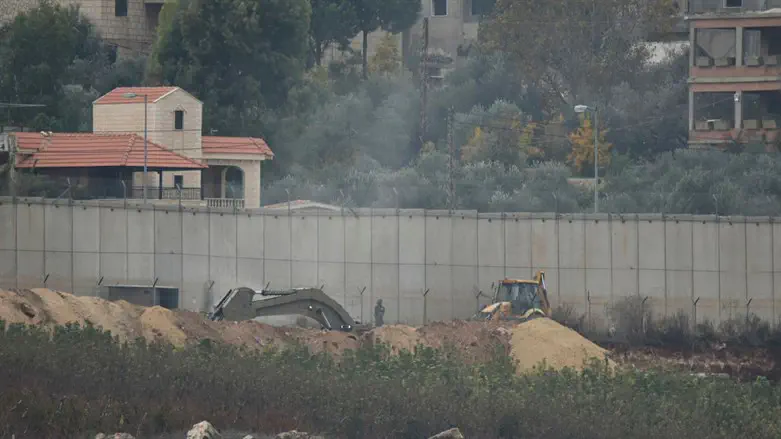
In a conversation with Arutz Sheva - Israel National News, the head of the Metula Council David Azoulay criticizes the government’s current policy, dictated by the political echelon to the IDF, and is skeptical about US mediator Amos Hochstein’s attempts to mediate between Israel and Hezbollah.
"We have not seen any change. We are talking about an area of 130 houses in Metula that have been damaged as a result of missiles and drones," explains Azoulay on the major damage to the homes in his settlement. “This frustrates us extensively. Israel has displaced people from their homes and there is no prospect for any change in the situation in the entire north."
Azoulay responds to the question of whether IDF strikes in southern Lebanon are not considered to be offensive operations and claims that these are "completely small scale" strikes.
"Ultimately we have to remember that they are shooting from ranges of 8-10 km and the IDF doesn't reach there at all. We have been told that they are attacking headquarters, bases, and launch facilities, but in the end, we have to prevent the anti-tank missiles from reaching us. I don't think we are doing enough, and we are focusing on defensive actions, instead of being offensive."
"In Metula we work together with the IDF, but the political echelon has been ordering the army to 'protect within its sector.' Unfortunately, we are only defending all the time and being fired on. You have to remember - people have been displaced from their homes for four months. This never happened since the establishment of Israel."
Azoulay was asked if he believed that the solution was to return to a security zone inside Lebanon. "Of course. I am obviously not giving the IDF or Israel solutions, but I must say one thing – give us security. The IDF has created a security zone within Israel, but we want them to keep Hezbollah away inside Lebanese territory. It is ridiculous that Hezbollah is dictating the pace of the war that is being waged against the strongest country in the Middle East. I still think we are the strongest country in the region, but we must be more offensive."
"Naftali Herz Imber wrote (the national anthem) 'to be a free people in our country', and we are not free in our country. The Israeli government has disappeared. No one gives answers and no one responds. They are acting as if everything is fine in the north. I am so frustrated that I do not know who to turn to," says the head of the council.
"There are offices that do holy work and help us, but I am interested in security. I want to see people returning to their homes," Azoulay demands. "There are many government ministries, but I don't see that they are helping us that much. The commander of the Northern Command comes on patrols and we talk to them all the time. But once they receive an order to defend in their sector, they don't move from their position."
Azoulay was asked if the members of the cabinet and the government ministers have come to Metula, and said, "I invite them all the time. Unfortunately, they are not permitted to come."
"The Minister of Agriculture has told me that the security forces do not allow them to come. I can say that both Moshe Arbel and Wasserlauf do a lot to help here, but I do not see other ministries working for us too much. The Treasury has started to move some things. I hope that the Minister of Finance will solve the problem of compensation for businesses, but I want to tell you – we want security. We want to return to our homes. This is the most basic request in a democratic country. There is nothing simpler than this request."
In conclusion, Azulay refers to the agreement that is forming in the north, mediated by envoy Amos Hochstein on behalf of the US Secretary of State, and explains that "these Hezbollah terrorists are not righteous. They will not go away alone. Of course, we do not want a war, but I do not believe that they will go away with just any agreement. Maybe they will make an agreement, but it will fade away, just like the dollars and the arrangements we made in the south with Hamas, and we saw how it all exploded in our faces.
"I don't believe in mediator Amos Hochstein. I don't believe in what he can achieve through any agreement that will be a solution to the impossible situation that we have found ourselves in."
